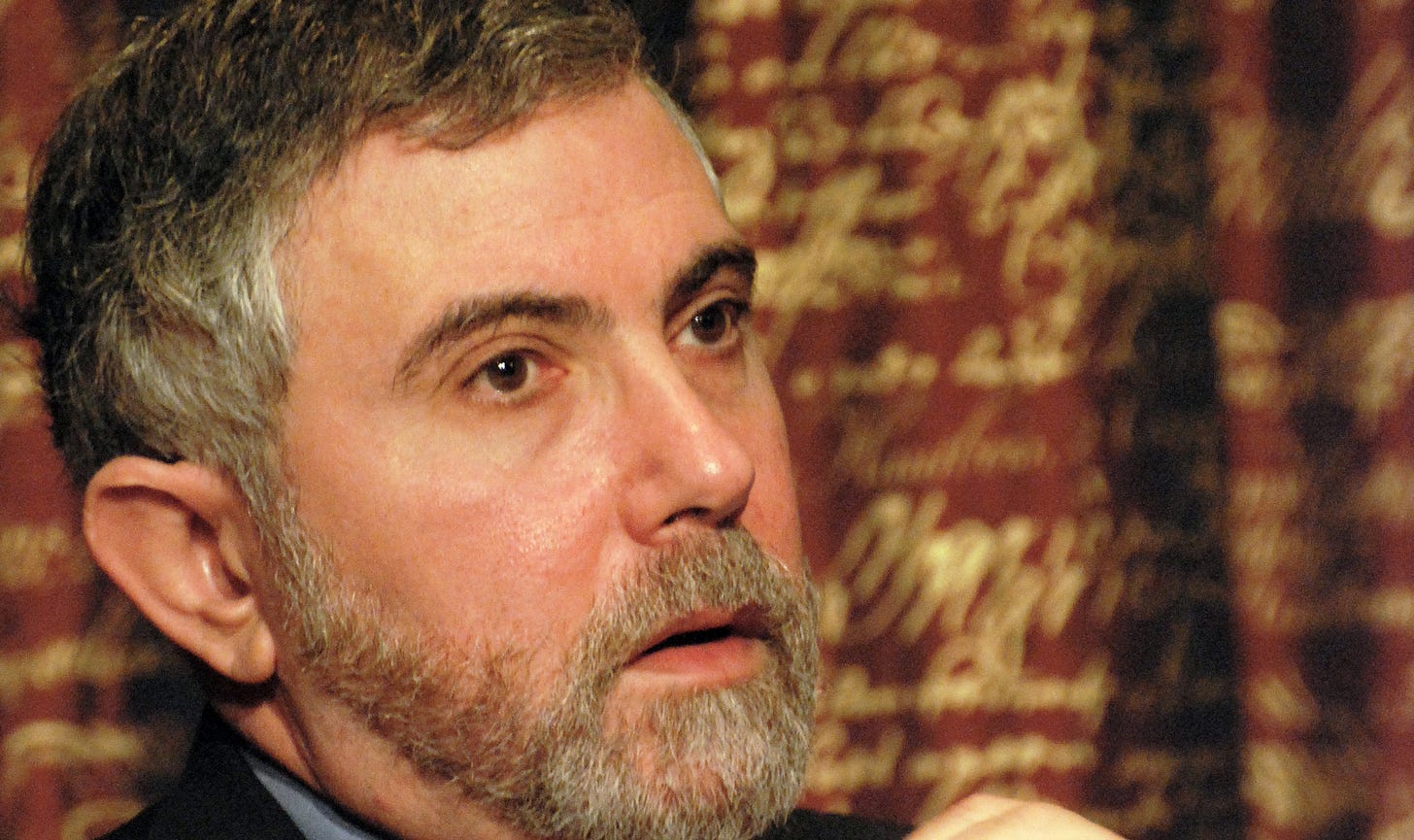Paul Krugman’s August 10 op-ed attempts to mock advocates of unregulated free markets and, unsurprisingly, makes a pathetically weak case against them.
First let’s clear up an important matter of terminology. Although Krugman aims his criticism at “libertarians,” most of his remarks pertain to advocates of unregulated free markets. Many people who advoca…
Keep reading with a 7-day free trial
Subscribe to The Objective Standard to keep reading this post and get 7 days of free access to the full post archives.




